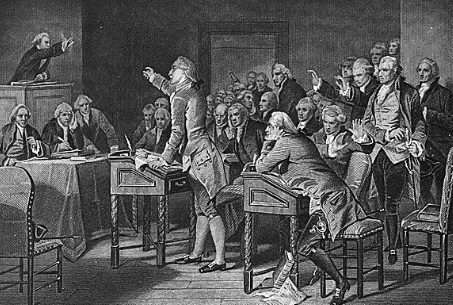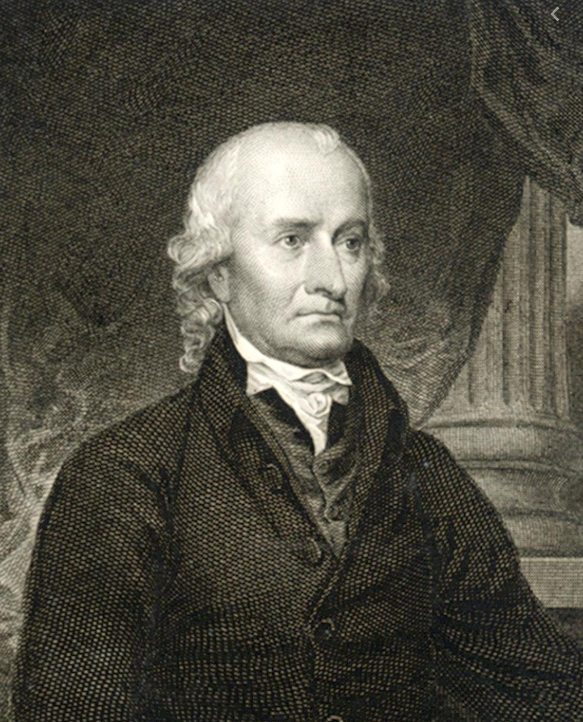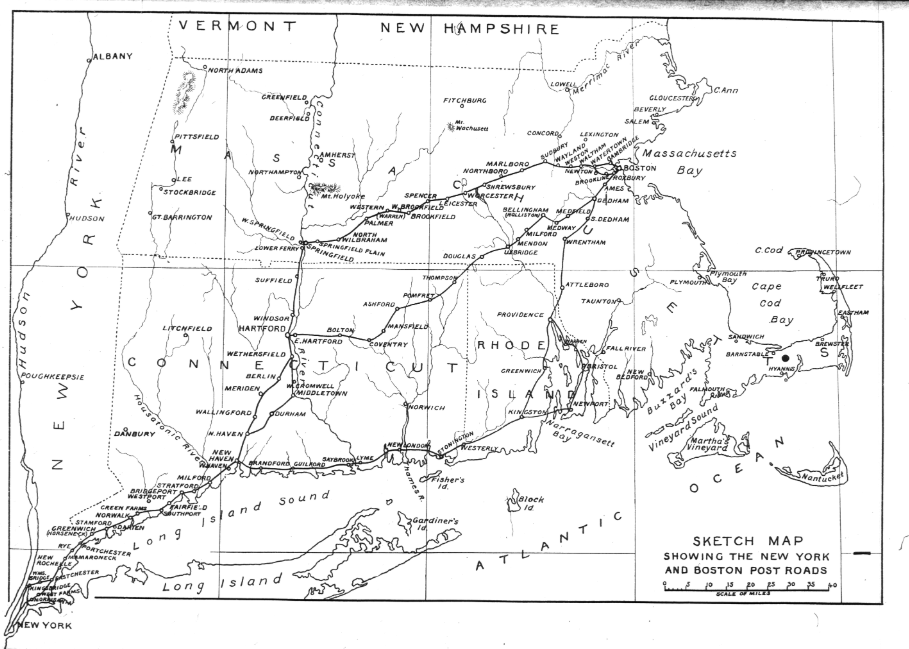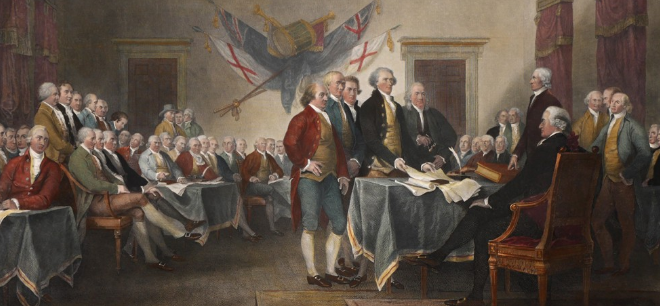Future Founders - The 11 Most Important Stamp Act Congress Delegates
I have written before regarding the importance of the Stamp Act Congress.
As the first united protest against taxes created by the Mother Country, it is an extraordinarily interesting meeting which took place a full nine years before the First Continental Congress gathered to discuss responding to new taxes.
In fact, many of the Founders expected the First Continental Congress to have similar results as that of the Stamp Act Congress.
The Stamp Act Delegates
Personally, I find it fascinating to look at the revolutionary careers some of the Stamp Act Congress Delegates would go on to have.
Some of these men would play small roles in the American Revolution. Some would go on to be hardcore Loyalists. A small handful would pass away before Lexington and Concord.
Four would sign the Declaration of Independence (two more would have sons that signed). Nine would sign the Continental Association (the boycott that resulted from the First Continental Congress). Three would write the Articles of Confederation and two more would attend the Constitutional Convention. almost twenty-five years later.
Notably, only nine of the thirteen colonies sent representatives.
Today, let’s look at how some of these men from least to most important in the American Founding.
11. Robert Livingston - Died in 1775, but his son (Robert Livingston) was on the Committee of Five which created the Declaration. All of his children (as well as many nieces and nephews) played some role in the Founding.
10. James Otis - As one of the earliest and most ardent leaders of the rebellion in Massachusetts, Otis is the primary mover behind the Stamp Act Congress. Unfortunately, he would suffer from mental illness and his importance to the Revolution quickly vanished.
9. John Morton - A Pennsylvania surveyor who signed the Declaration and Continental Association and an author of the Articles of Confederation.
8. Thomas Lynch - A signer of the Continental Association from South Carolina. Fell ill during the Second Continental Congress, his son (Thomas Lynch, Jr.) would sign the Declaration. Both passed away in 1776.
7. Christopher Gadsden - A signer of the Continental Association and designer of the ‘Don’t Tread on Me’ Flag. A South Carolinian who served as a Brigadier General in the Continental Army.
6. Philip Livingston - Signed the Declaration of Independence and Continental Association. Continued his stay in the Continental Congress while joining the New York State Senate, though fell out of the limelight when his health declined.
5. Thomas McKean - A signer of the Declaration, Continental Association and Articles of Confederation who served as Governor of both Pennsylvania and Delaware as well as Chief Justice of the Pennsylvania Supreme Court.
4. Caesar Rodney - Delaware’s favorite son who signed the Declaration, Continental Association and Articles of Confederation. His midnight ride through a thunderstorm led to the tie breaking vote in favor of independence. Served as wartime Governor of Delaware.
3. William Johnson - A Diplomat and Delegate from Connecticut who signed the Constitution and was an original Senator in the United States Congress.
2. John Rutledge - Signed the Continental Association and only skipped the signing of the Declaration because he was elected Governor of South Carolina. An inaugural member of the United State Supreme Court and the nation’s second Chief Justice.
1. John Dickinson - Signed the Continental Association but refused to sign the Declaration because he did not think the nation was ready yet. Went on to write the Articles of Confederation and parts of the Constitution, both of which he signed. A Governor of both Pennsylvania and Delaware, holding both positions simultaneously for several months.
What do you think, did I get the order rights?
Who would you have put where?
Here are some related articles:
John Cruger Jr Vanishes Into the Forgotten Third - Cruger attended the Stamp Act Congress.
Samuel Ward Sets Petty Issues Aside - Ward’s brother Henry attended the Congress.
Britain’s First Mistake- The Sugar and Currency Acts - The earliest unfair taxes.
The Stamp Act Congress is essential to a complete understanding of the hostilities growing toward the Mother Country which culminated in the Revolutionary War.
‘Prologue to Revolution’ was written by Edmund S. Morgan (and his wife, Helen) who was one of the preeminent American Revolution historians of the 1970’s and 80’s. This was mandatory reading for me in school and I can’t recommend it enough.
If you’d like a copy you can get one through the Amazon affiliate link below (you’ll support this site, but don’t worry, Amazon pays me while your price stays the same).
Want to get fun American Revolution articles straight to your inbox every morning?
Subscribe to my email list here.
You can also support this site on Patreon by clicking here.
Thanks for your support!






